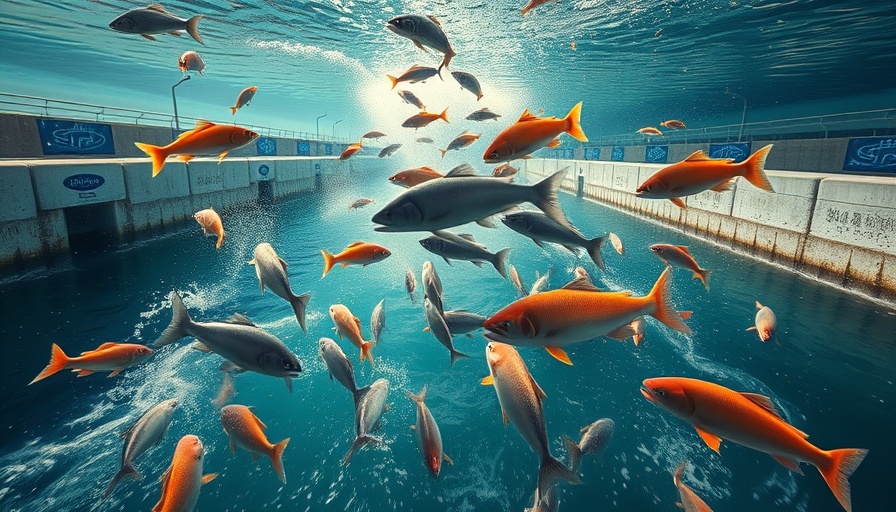
The Impact of Water Quality on Fish Welfare and Sustainability
In the aquaculture industry, ensuring optimal water quality is critical for the health and welfare of fish, particularly as concerns over sustainability and operational costs continue to rise. Recent research explores various factors that significantly impact water quality, including stocking density and innovative solutions like dietary additives.
Studies Highlight Resilience of Cleaner Fish
One fascinating study from the University of New Hampshire Coastal Marine Laboratory examined the resilience of cleaner fish, particularly the lumpfish. It was found that juvenile lumpfish can thrive in a variety of conditions, withstanding impressive stocking densities that are nearly double the industry standard. This resilience underscores their ability to adapt to fluctuating environmental factors, such as temperature and ammonia levels, without significantly affecting survival rates. However, it was noted that high stocking can limit their growth, indicating a complex relationship between density and fish welfare.
Innovative Solutions for Nile Tilapia
On the other side of the world, a study conducted in Egypt demonstrated the challenges associated with unchanged water systems that compromise the health of Nile tilapia. Researchers discovered that while stagnant water negatively impacts the fish's growth and physiological functions, incorporating dietary lactic acid can serve as a protective measure. This finding illustrates how targeted dietary adjustments can effectively mitigate environmental stressors, enhancing fish health while also reducing operational costs.
Broader Implications for Aquaculture Practices
The insights garnered from these studies encourage aquaculture professionals to reevaluate current practices and consider innovations that promote both fish welfare and operational efficiency. Understanding the delicate balance between water quality and fish health is paramount, as is recognizing how these factors interconnect to enhance productivity in the industry. As research continues to evolve, these findings pave the way for sustainable aquaculture methods that ensure we meet both market demands and ethical standards.
For industry professionals, staying informed about these developments is essential. Embracing innovative approaches to manage water quality could lead to significant improvements in animal welfare and operational success, ultimately enhancing the sustainability of aquaculture practices.
 Add Row
Add Row  Add Element
Add Element 



 Add Row
Add Row  Add
Add 
Write A Comment